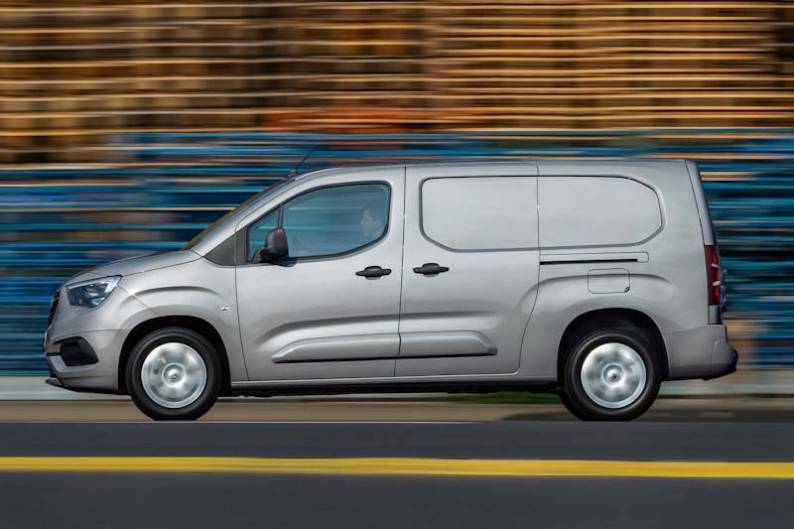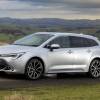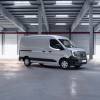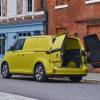
RAC sale – up to 33% off*
• Roadside cover from £5.29 a month†
• We get to most breakdowns in 60 mins or less
• Our patrols fix 4/5 breakdowns on the spot

The Vauxhall Vivaro Electric sells well for a reason. Jonathan Crouch finds out why.
Ten Second Review
Vauxhall's Luton-made Vivaro Electric is our market's best selling mid-sized EV van - and one of the UK's fastest selling EVs of any kind. That's due to a large dealer network, decent operating range and load area practicality that is generally uncompromised by the full-battery powertrain. If your company's ready to switch to Zero Emissions motoring, one of these probably needs to be on your radar.
Background
The segment for EV vans has had a slow start, partly because of the global pandemic but mainly because of high pricing and lack of operating range. Gradually though, operators are beginning to take full-electric LCVs seriously. To understand why, you might want to take a look at our subject here, Britain's best selling EV commercial, the Vauxhall Vivaro Electric.
This British-built contender is a shared Stellantis Group design also marketed by the conglomerate as the Citroen e-Dispatch, the Peugeot e-Expert and the Fiat E-Scudo - and by Toyota as the Proace Electric. We've also tried this vehicle in MPV passenger form as the Vauxhall Vivaro Life Electric. So what sets this van apart in the race to convert sceptical businesses to the advantages of EV? Let's find out.
Driving Experience
Unlike the Vivaro Life Electric MPV, the Vivaro Electric van comes with a choice of batteries. That's quite important because stuck with the standard 50kWh battery, neither the Life MPV or the Vivaro Electric van are able to take you very far - up to 133 miles combined, or up to 196 miles in the city. With the pricier 75kWh battery fitted to the Vivaro Electric van, there's a 196 mile combined range, which rises to 267 miles in the city.
If you're wondering what driving a full-electric mid-sized van might be like, well, there's not too much to get your head around. You turn the key in the ignition, wait for the starting beep, then flick the gear toggle into Drive. There's a drive-mode selector that allows drivers to switch between ECO, NORMAL and POWER modes. There's 136hp on tap and there's also a 'B' option that ploughs extra energy back into the battery, offering more resistance while you're slowing down. Top speed is just 84mph.
Design and Build
Apart from the badge work, there's little to set this full-electric Vivaro apart from its diesel-engined stablemates. As with the combustion model, there's a choice of short wheelbase L1 or long wheelbase L2 variants, but Vauxhall doesn't offer a high roof option with either powertrain.
Inside, it's all pretty identical to leave the Vivaro diesel, though in place of the rev counter, you get an energy gauge for the battery. The gear lever meanwhile, gets replaced by a drive selector for switching between the various driving modes. The 7-inch centre infotainment screen has a Power Flow option which shows you at any given time what's being powered by what. A fuel gauge is provided but of course the purpose here is to show the remaining battery capacity. The water temperature gauge from the diesel Vivaro is replaced by one showing energy consumption by the climate control system.
As usual with a Vivaro, there's a single driver's seat and a two-person passenger bench. And there's a through-loading facility so that you can poke in longer items from the loading bay behind. The middle part of the seat folds down to create a table.
Market and Model
Vivaro Electric van pricing starts at around £35,000 (exc VAT) after deduction of the £5,000 Government Plug-in Van Grant and this LCV is available in three trim levels: 'Prime', 'Pro' and 'GS', with a choice of two lengths, 'L1' (4.95m) and 'L2' (5.30m). There's also a passenger-carrying version, the Vivaro Life Electric, priced from around £37,500 and available in 'Combi' and 'Elite' 8 and 9-seater forms. And a Platform Cab commercial variant (priced from just under £40,000 excluding VAT).
All Vivaro Electric van models are decently equipped, even base-spec variants including cruise control, a speed limiter and a DAB audio system with Bluetooth. Plus rear parking sensors, air conditioning, High Beam Assist and a 7-inch centre touchscreen. 'Pro' variants add a body-coloured exterior, while 'GS' models have a sporty vibe with sports-style bumpers and 18-inch black alloy wheels. All versions benefit from 'Vauxhall Connect' which means that, via an app, you can interact with your Vivaro via your smartphone.
Practicalities and Costs
Carriage capacity is unchanged over an ordinary diesel Vivaro, at 5.3 m3 for the L1 6.1 m3 for the L2. The only practical area where you really suffer with the electric model is in terms of maximum payload, which will be around 200kg down on what you'd get from the diesel.
We gave you the driving range figures in our 'Driving' section - 133 miles for the 50kWh battery model and 196 miles for the 75kWh variant. The cost savings versus diesel model won't of course be as great as they used to be but they should still be substantial. At this vehicle's original launch before the electricity crisis, Vauxhall reckoned that an operator would save around £100 a month compared to a 2.0-litre diesel Vivaro, based on covering 40 miles a day. Servicing costs will be lower as well, there's no road tax, Benefit-in-Kind tax is levied at 60% of the normal van rate and the Vivaro Electric is exempt from the London Congestion Charge.
Charging via a 7.4kW wall box will take over 7 hours for the 50kWh battery - it's more than 11 hours for the 75kWh unit. If you find a 100kW DC rapid charger when you're out and about, you'll be able to get the smaller battery from near empty to 80% full around half an hour: it'll take around 45 minutes to do the same with the larger capacity unit.
Summary
The Vivaro Electric is one of the best of the current crop of mid-sized EV vans. And if you pair that with Vauxhall's wide UK LCV dealer network, you have the reason for its strong sales performance. Well, a strong sales performance by EV van standards anyway. In half a decade's time, we'll probably look back on early full-battery LCV like this as being hopelessly compromised, but right here, right now, this is where it's at.
Of course, potential Vivaro Electric customers convinced by Vauxhall's proposition will need to remember that in a rival full-battery Peugeot Expert, Citroen Dispatch, Fiat Scudo or Toyota Proace, they could have pretty much exactly the same product with a different badge. It's at that point though, that the power of Vauxhall's huge UK dealer network might well sway the decision this Luton brand's way.
If you thought an EV drivetrain would compromise carriage capacity or condemn your van to an urban life, you'll be pleasantly surprised by the Vivaro Electric. Enough to pay the price for one? That might be a different matter.







